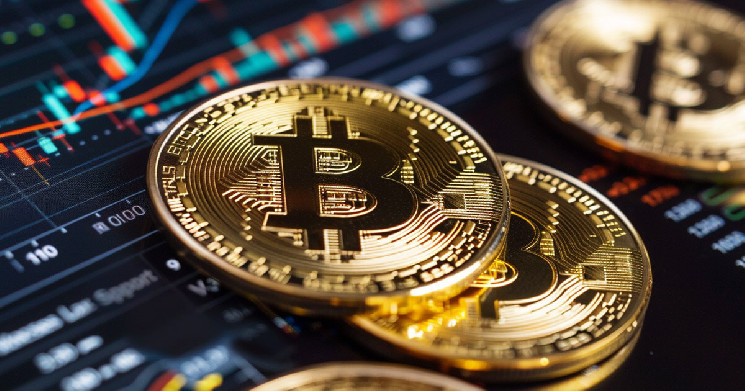Bitcoin is a revolutionary idea—a decentralized, peer-to-peer digital money system, retailer of worth, timestamping server, and occasion sequencer with a hard and fast provide immediately tied to real-world vitality consumption. Its core values of shortage, transparency, and decentralization supply a stark distinction to the normal monetary system. Nonetheless, the rise of Bitcoin derivatives, seen by many as a bullish indicator, may very well threaten to undermine these very ideas that make Bitcoin distinctive and doubtlessly transformative.
Bitcoin immediately correlates to our pure assets
As local weather physicist Margot Paez argues, Bitcoin’s often-criticized vitality consumption is more and more tied to renewable sources. This connection to real-world assets provides Bitcoin a tangible worth proposition. Not like conventional finance, the place worth might be created by means of advanced devices divorced from bodily actuality, Bitcoin’s value is intrinsically linked to the computational energy and vitality expended in its creation.
Bitcoin is immediately tied to the assets of our planet greater than any monetary instrument thus far. Its correlation to vitality consumption is way greater than tradFi, which requires huge numbers of staff, places of work, vehicles, vans, and different high-consuming infrastructure assets. By comparability, Bitcoin requires uncooked compute and minimal human upkeep.
At a time when human vitality consumption is increasing virtually parabolically, our capability to maintain it in verify is turning into more and more more durable, resulting in crucial injury to our planet. Bitcoin is already above 50% renewable, and its path towards 90-100% is comparatively easy. Our pure assets, like Bitcoin’s provide, are restricted – coal, oil, and gasoline won’t final eternally. Even renewable assets corresponding to photo voltaic and nuclear are considerably finite, however the scale at which the solar’s energy depletion turns into related is pretty moot for this dialogue.
Nonetheless, our monetary instruments shouldn’t be in a position to create wealth many multiples past our pure assets. TradFi is propped up by world bets on financial occasions, corresponding to futures and choices contracts. Do we actually need Bitcoin to be supported by the identical monetary instruments we intention to switch? Or do we wish the “hardest type of cash” to redefine a brand new period of economic freedom whereby we equate the worth of the community on to the vitality used to safe it? Bitcoin is a fairer, more true illustration of our capabilities and progress.
Bitcoin derivatives are at odds with the Bitcoin community
Off-chain Bitcoin derivatives introduce a layer of abstraction that echoes the very system Bitcoin sought to switch. By permitting artificial publicity to Bitcoin with out proudly owning the underlying asset, derivatives doubtlessly dilute the shortage precept basic to Bitcoin’s design. This creates a type of “digital double-spending” – not within the blockchain itself, however within the broader ecosystem.
Furthermore, derivatives buying and selling usually happens on centralized platforms, contradicting Bitcoin’s decentralized ethos. This centralization reintroduces counterparty dangers and opacity, stepping away from the transparency supplied by Bitcoin’s public ledger.
Whereas derivatives supply advantages like danger administration and value discovery, additionally they introduce complexity which will hinder Bitcoin’s potential for monetary inclusion. The simplicity of Bitcoin as digital gold or money turns into obscured by refined monetary merchandise, doubtlessly alienating the very customers it aimed to empower.
Moreover, as Paez suggests, Bitcoin mining may catalyze clear vitality improvement by offering versatile load for vitality grids. Derivatives buying and selling, disconnected from this bodily course of, doesn’t contribute to this potential ecological profit.
In essence, Bitcoin derivatives danger recreating the identical monetary superstructure that Bitcoin was designed to avoid. By layering further worth indirectly associated to our pure assets, we could also be holding Bitcoin again from realizing its true potential as a clear, environment friendly, and ecologically sustainable different to conventional finance.
Who advantages from Bitcoin derivatives? ETF-authorized contributors like JP Morgan, billionaire buyers enjoying the market, degen merchants who missed the final bull run seeking to make up time with leverage, and different institutional buyers. Who advantages from on-chain Bitcoin transactions? Effectively, the entire above, plus particular person buyers and miners securing the community.
For Bitcoiners who commerce derivatives, it’s essential to think about whether or not these monetary improvements align with Bitcoin’s unique imaginative and prescient. Maybe, in our quest for monetary sophistication, we’re inadvertently stepping away from the revolutionary simplicity that made Bitcoin a beacon of economic reform.


